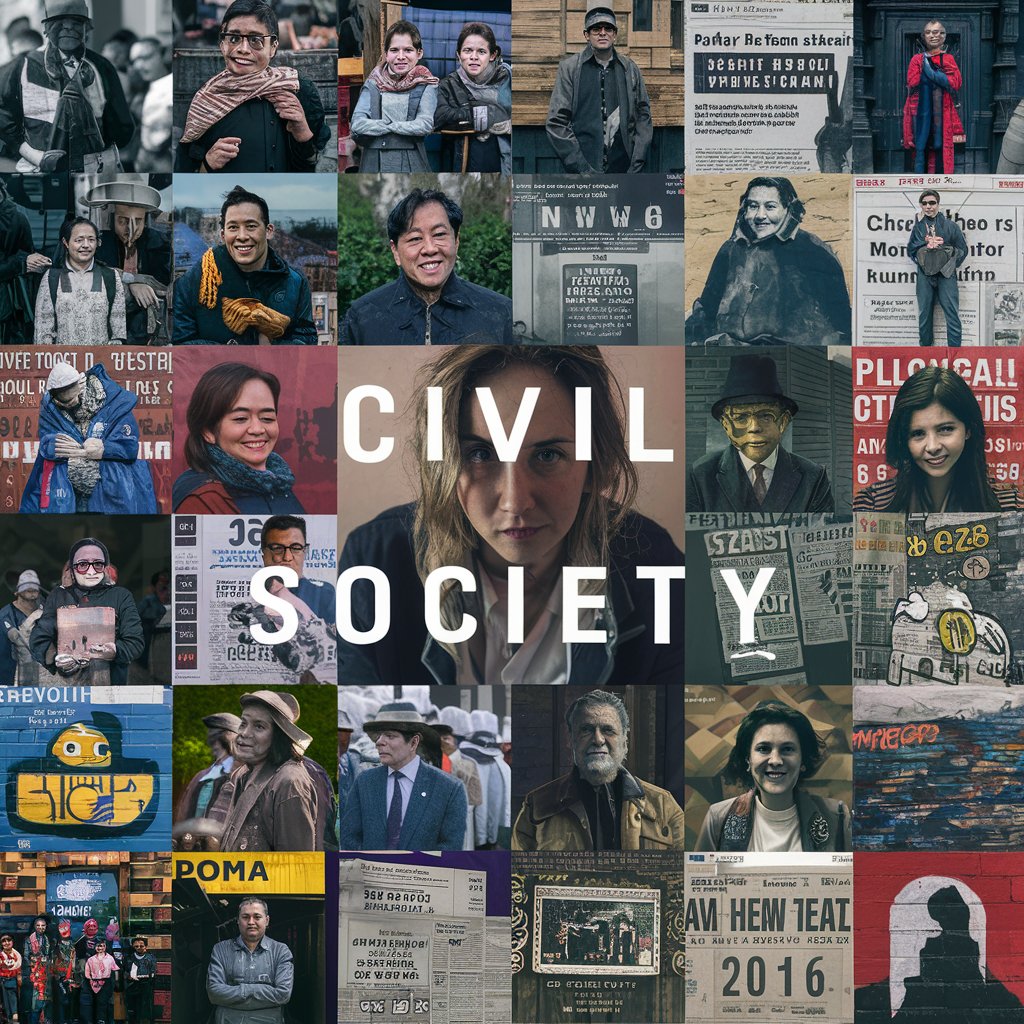Q. No. 8. Write short notes on the following:(a) Civil society(b) Public opinion. ( 2016-I)

(a) Civil society
Civil society refers to the collective sphere of voluntary associations, organizations, and individuals outside of the government and the private sector, who come together to pursue common interests, promote social justice, and advance public goods. It encompasses a wide range of non-governmental and non-profit entities, including community groups, advocacy organizations, religious institutions, labor unions, and grassroots movements.
At its core, civil society is characterized by its independence from both governmental and commercial interests, allowing it to act as a check on power and a voice for citizens. It serves as a vital intermediary between the state and the individual, facilitating communication, representation, and engagement in the policymaking process. Civil society organizations (CSOs) often play crucial roles in monitoring government actions, advocating for policy reforms, and holding authorities accountable for their decisions and actions.
Furthermore, civil society serves as a platform for civic engagement and social mobilization, providing avenues for individuals to participate in democratic processes, express their opinions, and contribute to societal development. By fostering active citizenship and civic responsibility, civil society strengthens democratic governance and promotes a culture of transparency, inclusivity, and respect for human rights.
In addition to its role in governance and advocacy, civil society plays a crucial role in addressing social, economic, and environmental challenges. CSOs often spearhead initiatives to tackle issues such as poverty, inequality, environmental degradation, and healthcare access, leveraging their expertise, networks, and resources to drive positive change at the local, national, and global levels.
Overall, civil society serves as a cornerstone of democratic societies, fostering pluralism, participation, and accountability. Its vibrant and diverse ecosystem of organizations and individuals contributes to the resilience, responsiveness, and legitimacy of governance systems, making it an indispensable component of a healthy and inclusive society.
(b) Public opinion
Public opinion refers to the collective attitudes, beliefs, and sentiments held by members of a society on various issues, events, and policies. It represents the aggregate views of individuals within a population and plays a significant role in shaping political processes, policy decisions, and societal norms.
At its core, public opinion serves as a barometer of societal attitudes and preferences, reflecting the diverse perspectives and experiences of citizens. It encompasses a wide range of topics, including political preferences, social values, economic priorities, and cultural preferences. Public opinion is shaped by numerous factors, including personal experiences, social interactions, media influences, and political discourse.
Public opinion influences political processes and decision-making in several ways. Elected officials and policymakers often consider public opinion when formulating policies, seeking to align their actions with the preferences of their constituents to maintain electoral support and legitimacy. Additionally, public opinion can influence the agenda-setting process, determining which issues receive attention and resources from policymakers and the media.
Furthermore, public opinion serves as a mechanism for holding leaders and institutions accountable for their actions. Through mechanisms such as elections, protests, and public demonstrations, citizens can express their dissatisfaction with government policies or demand accountability from elected officials. Public opinion can also influence the outcomes of elections and referendums, shaping the composition of government and the direction of public policy.
Media plays a crucial role in shaping public opinion by providing information, framing issues, and shaping narratives. The way in which events and issues are portrayed in the media can influence public perceptions and attitudes, shaping the formation of public opinion. However, public opinion is not static and can evolve over time in response to changing circumstances, new information, and shifts in societal values.
Overall, public opinion is a dynamic and influential force in society, shaping political processes, policy decisions, and societal norms. It reflects the diversity of perspectives within a population and serves as a mechanism for expressing citizen preferences, holding leaders accountable, and shaping the direction of governance.